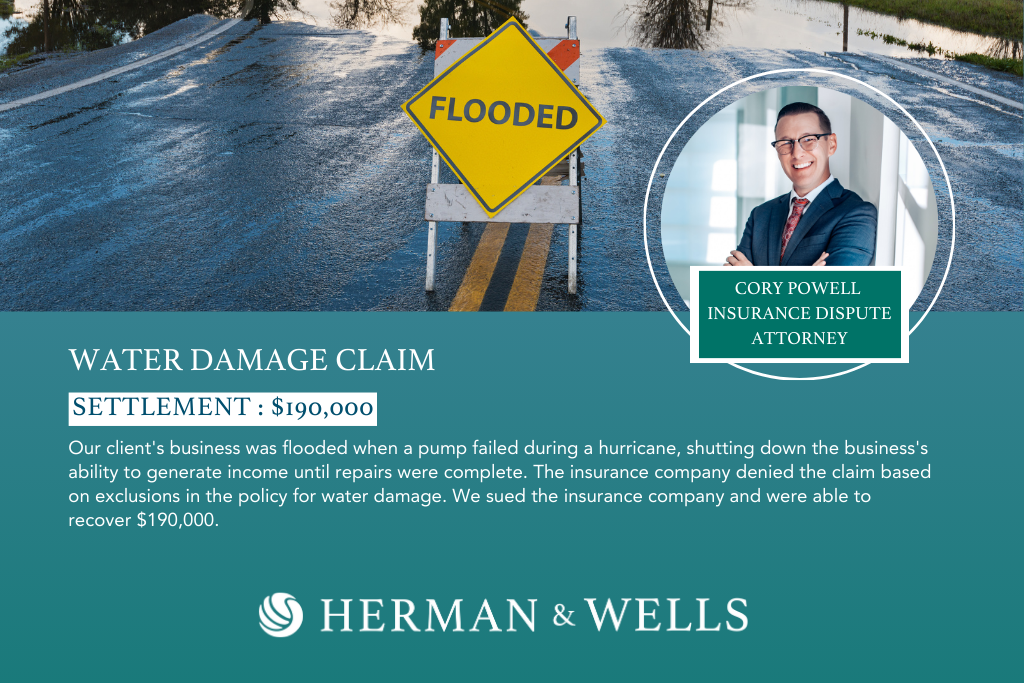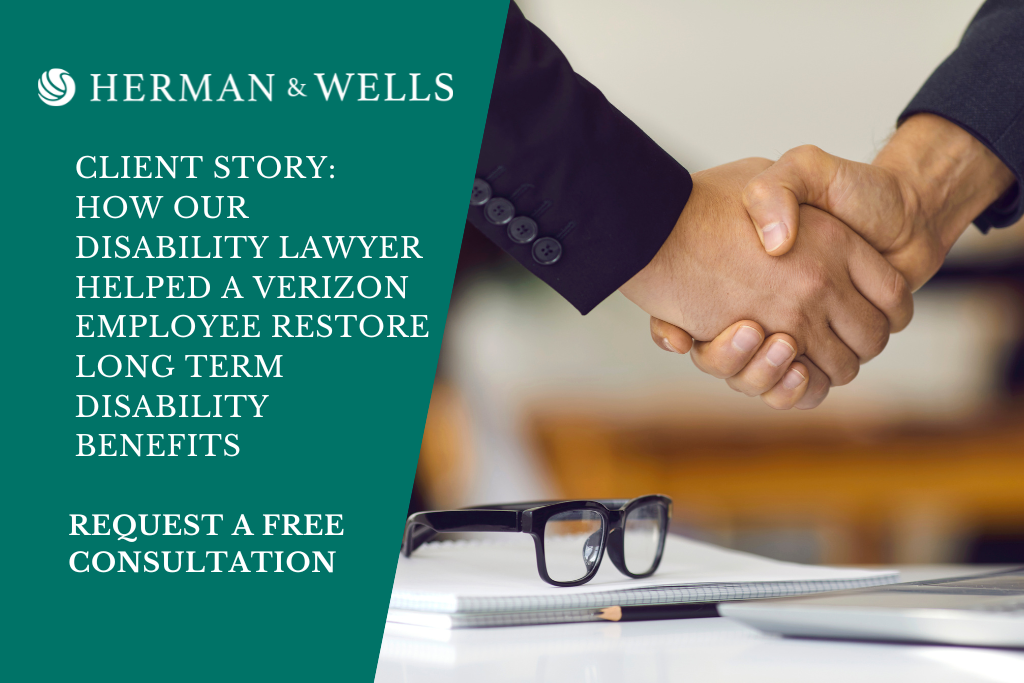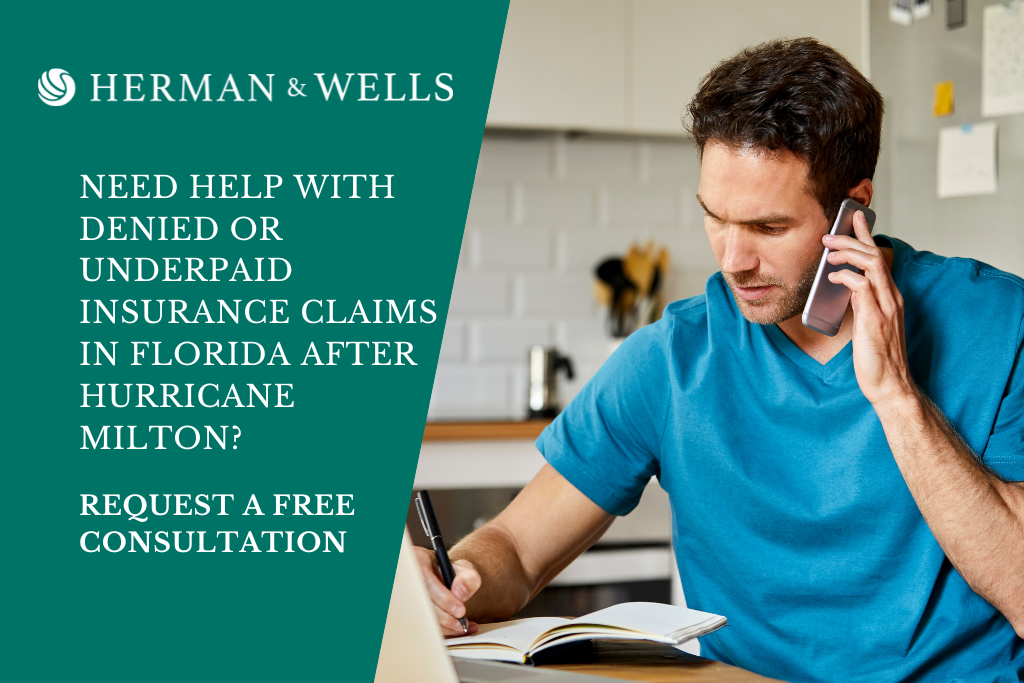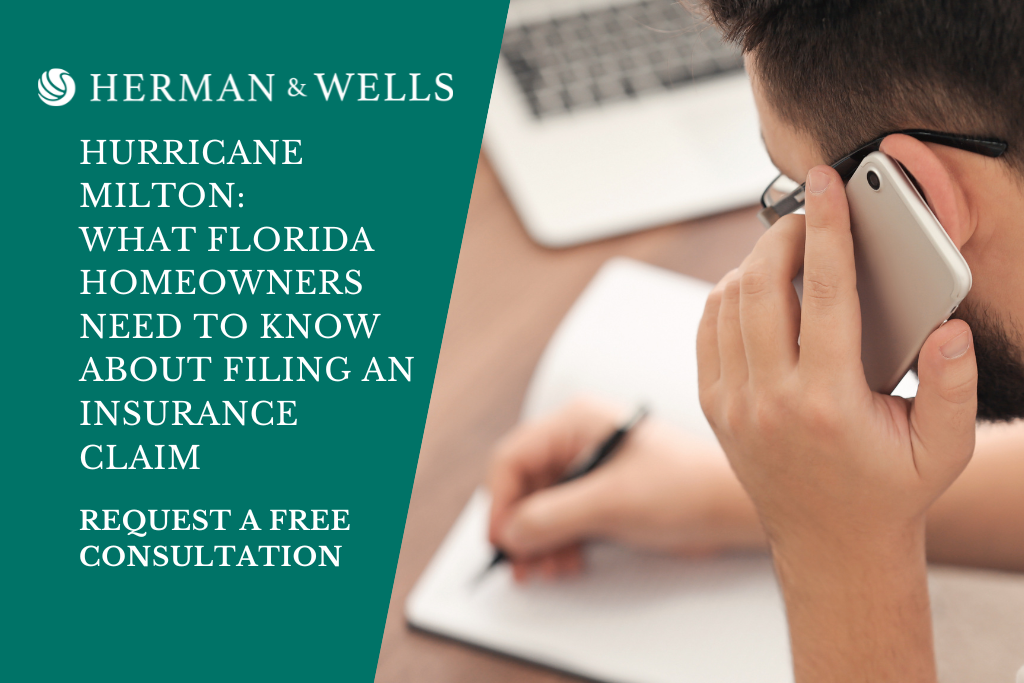As we enter hurricane season, nature reminds us that we have a lot to prepare for. From making sure we have everything we need to protect our families to making checklists in preparation for the aftermath, staying ready now will keep the stress levels down when the storm wears off.
While the surge grows in intensity, so does the risk of damage to and around your property.
However, people almost never prepare to have to file a lawsuit against their insurance company for disputes over breaches of contract, denied claims, or underpaid reimbursements.
Before you mentally prepare to file a claim, keep the following in mind to ensure you’re aware of how insurance companies handle wind versus flood damage.
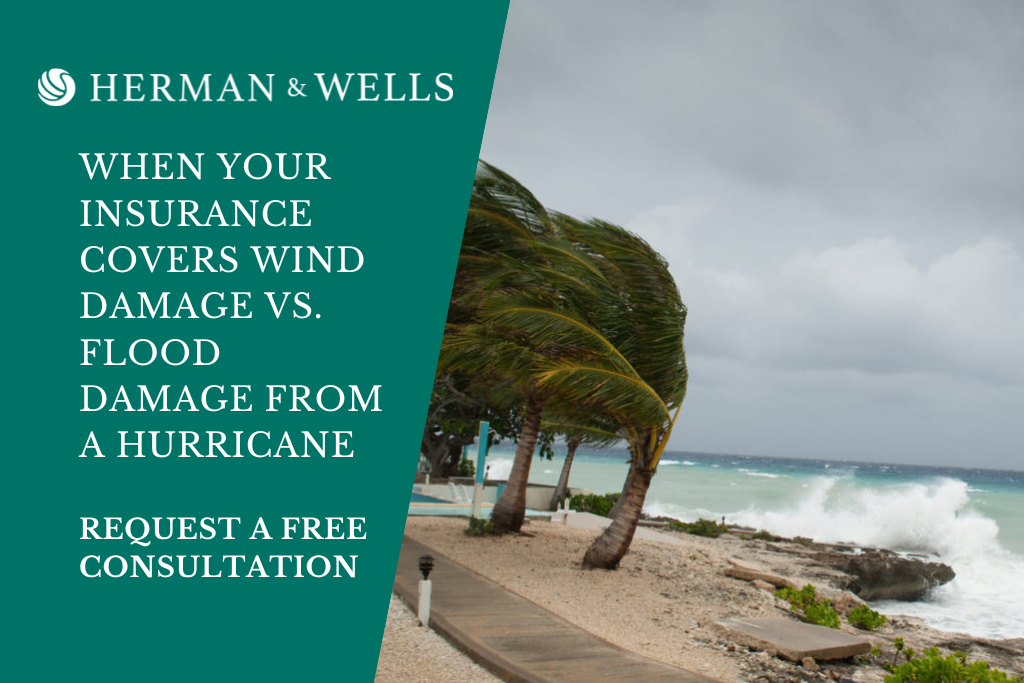
The Cliff Notes: Key Takeaways From This Post
- 1Wind damage from hurricanes includes roof and wall destruction, power line disruption, and being hurled of objects.
- 2Flood damage from hurricanes causes serious water damage, inundation-related damage, and electrical damage.
- 3Homeowners insurance typically covers wind damage but not flood damage; flood insurance is needed for flooding caused by hurricanes.
- 4Sewer damage and car insurance can also be affected by hurricanes.
- 5If you need to file a claim for hurricane-related damages or have issues with an insurance provider, consider speaking to an insurance dispute attorney.
What is the difference between wind and flood damage?
Of the common types of the havoc caused by a hurricane, wind and flood damage are the two culprits that join forces to cause insurance companies to empty their pockets in dismay. In 2020 alone, the hurricane season cost a total of $47 billion, the seventh costliest hurricane season in history. Both wind and flood damage can cause serious damage.
When planning to file a claim, be sure to keep the following in mind.
Wind Damage
Hurricanes cause major winds, but strong gusts aren’t simply what makes these storms so dangerous. It’s what the wind carries with it, knocks over, spins into disarray, and so much more.
Hurricane winds can rip entire roofs off of houses, cave walls in, send power lines and heavy fixtures tumbling down, and propel unlikely objects—road lights, stop signs and more—far and wide.
In Florida and in other places where coastal communities are at seasonal risk of hurricane devastation, it is often recommended that you avoid planting tall trees and other signs on your property that constitute a wind hazard.
Keep this in mind when you’re filing a claim, because insurance properties will actually look into every nook and cranny when analyzing your case. Luckily, most homeowners insurance premiums include wind damage from hurricanes under their plans, on one hand. Flood damage, on the other hand, often goes uncovered by providers.
Flood Damage
Gusty winds aren’t the only thing blowing your insurance rates out of the water. When hurricanes practically send the ocean inland, large waves can flood basements, rip houses completely out of their foundation, and cause tens of millions of dollars in property damage.
Even worse, gusty winds can send columns of water through properties, a true recipe for disaster that insurance companies will still claim wasn’t caused by the wind itself, but rather the flooding. We recommend protecting yourself from both wind and flood damage by making sure you have plans for both, and staying up-to-date on what your insurance does and does not cover.
Know what your insurance covers
Insurance premiums are designed with loopholes to keep carriers not entirely sure of what their coverage plans look like.
While concurrent cases—claims that have to be filed independently, but work together to cause property damage—commonly arise following a hurricane, understanding what is covered is both important to your finances and wellbeing.
Hurricane insurance, in a nutshell, refers to the combination of different insurance coverages—homeowners, sewer, flood, and wind that are recognized by various providers—and not just one plan itself.
When researching the right type of hurricane insurance for your needs, you might be surprised and/or confused to find that it falls under the blanket of homeowners’ insurance.
However, keep in mind that insurance providers design their premiums and coverage plans with situational exclusions in mind.
Be prepared to pay a higher deductible for flood damage than for wind damage
Because flood insurance relies on the idea that you’ll pay for the coverage of two components—the cost of repairs to your home and the items inside of it—deductibles are typically higher.
This is also thanks to the electrical, structural and plumbing damage that flooding can cause. While hurricane wind can also do serious damage to roofing and windows, and knock down trees, power grids and even thwart entire vehicles, other types of insurance cover this.
In a traditional sense, hurricane coverage typically falls under these types of insurance premiums:
Homeowners Insurance
When going through the process to buy a home, lenders typically require borrowers to purchase homeowners insurance to secure the approval process. In the state of Florida, hurricane coverage is typically folded under the required homeowners insurance umbrella.
However, some insurance providers include stipulations within their plans that deny coverage of flood or wind-related damage. In many cases, homeowners insurance covers damage by wind, but some providers require their carriers to purchase separate plans for flooding.
If you’re renting a living space, the property owner will likely have a homeowner’s insurance policy in place to protect the property. However, it is best to have renters insurance to make sure that your belongings are covered — in the event of storm-related damage.
Flood Insurance
With hurricanes comes a storm surge. Water levels rise as high as 20-30 feet, leaving structures exposed to severe flooding. Flood insurance covers water damage, inundation-related damage, electrical damage and more caused by hurricanes, but not by tropical storms.
Sewer Damage
Hurricanes can cause severe damage to your pipes and sewage systems, which can impact everything from sinks to toilets to showers, and even your drinking water. Sewer damage can cover the often expensive cost of gutting and getting these structures sorted out.
Car Insurance
Hurricane winds are no joke. If your car is damaged by flooding or wind, your car insurance policy should cover this. Now, if flooding or wind pushes cars into your home or property, you may end up filing multiple claims.
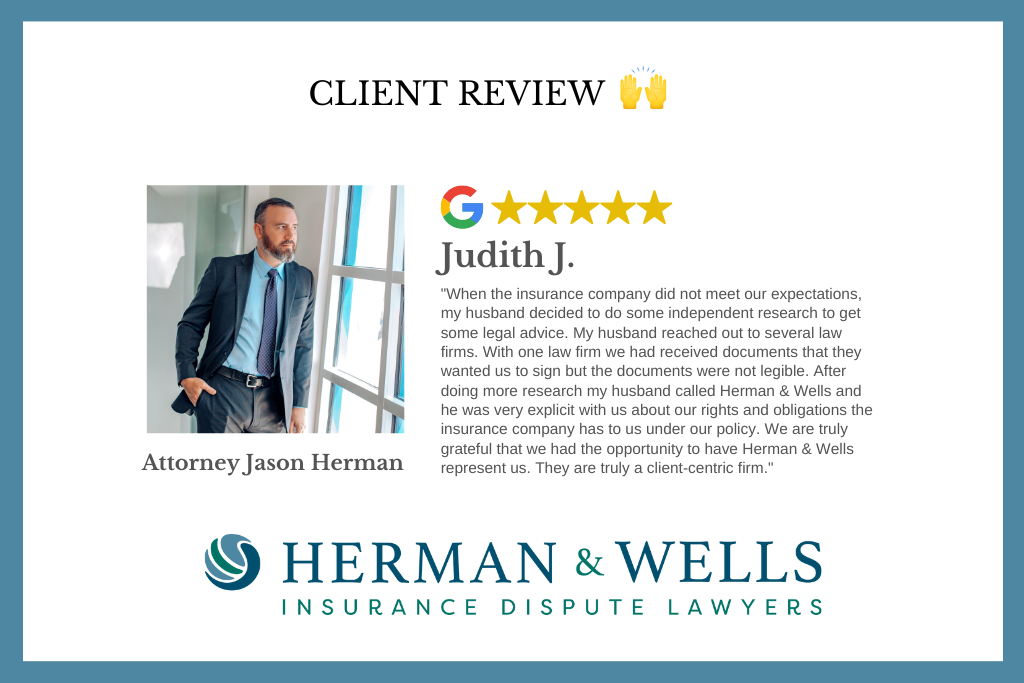
Why Talk to an Insurance Dispute Attorney After a Hurricane?
With the deleterious wind and flood combination that comes from hurricanes, assessing the damage and property losses after the fact can often be confusing and daunting—especially when you’re filing that big claim.
Insurance legalese is confusing by design. Ultimately, insurance companies are in it to make a quick buck, and if that means denying a claim you thought would be covered, then so be it.
If you find yourself suing your insurance company, you’re definitely not alone.
After hurricanes, insurance companies face hundreds of millions of dollars in claims and more. From arguing that damage from a hurricane is not included in your policy to finding loopholes that leave certain portions of the damage out, there are many ways to get shortchanged.
Disputing with insurance companies can get messy, but you shouldn’t have to go through the ringer alone.
Let the experts fight for you
If you’re paying for insurance, you should be covered when the time comes for you to file a hurricane insurance claim. Don’t let your insurance provider brush your case aside or pass the blame to another carrier.
At Herman & Wells, you can trust our extensive experience in standing up against lackadaisical insurance responses, so we can fight for you and help you get to repairing your home and your life. Better yet, you’ll only pay if we win more compensation from your insurance company.
Contact us today for a free consultation.
